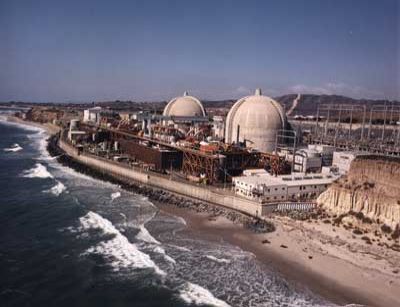
History of safety concerns and alleged stifling of whistle-blowers raises questions about plant that’s just five miles from an earthquake fault
(CBS News)
“Japan is an exact, perfect example of what can happen. We are less than two miles away, and we’re scared.” said resident Dagmar Foy.
The crisis unfolding in Japan has put a spotlight on nuclear safety in the United States. Yet at a Senate hearing Tuesday, a top federal regulator said it will have no effect on the re-licensing of the 104 nuclear plants in the United States.
CBS News correspondent Terry McCarthy reports the San Onofre plant has a history of problems that, some whistleblowers claim, were ignored for years.
The 28-year-old plant is just five miles from an earthquake fault. Like Fukushima, it has a long history of management problems and safety violations including faulty diesel generators, falsified fire watch reports, and inoperable emergency batteries.
“The thing that was occurring was that there was very little oversight,” says Mike Mason, who worked at San Onofre for 30 years along with Rick Busnardo, who was there for 25. They were in charge of making canisters to store spent nuclear fuel – one of the biggest worries right now at the Japan plant. In 2008, they say they discovered an employee was welding the canisters incorrectly.
“Potentially there could have failed to contain the fuel rod like it was supposed to,” Mason said. “He knew he was doing wrong and we immediately identified that to our senior management. They weren’t really receptive to it.”
Mason and Busnardo were so concerned they took their issue to the Nuclear Regulatory Commission. They weren’t alone. By 2009, complaints related to safety from San Onofre workers hit nearly 10 times the industry average.
James Chambers, a 27-year veteran of San Onofre, helped ensure the plant was operating within its safety guidelines. He says management pressured him to stop making complaints.
“If the workers at the power plant are afraid to tell the truth, that jeopardizes the health and safety of the public,” Chambers said.
Things got so bad at San Onofre that in March of last year federal regulators sent an official letter to the plant expressing their concern that workers had the perception they were not free to raise safety issues without fear of retaliation.
Mason and Busnardo retired claiming unfair retaliation. They are currently appealing a Labor Department decision that found no violation of their whistle-blower rights. Southern California Edison, the utility that runs the plant, declined to be interviewed, but in a written statement said: “Our highest priority is protecting the health and safety of the public. Employees are encouraged to bring forward safety concerns without fear of retaliation.”
Regardless, Mason says San Onofre is not as safe as it could be.
“I think that what makes a plant safe is how a corporation and how management deal with it,” Mason says.
Federal regulators tell CBS News that San Onofre is safe and say the plant has made improvements in its management style, but they want to see more, something local residents will be watching very closely.
www.cbsnews.com/stories/2011/03/29/eveningnews/main20048512.shtml?tag=cbsContent;cbsCarousel





